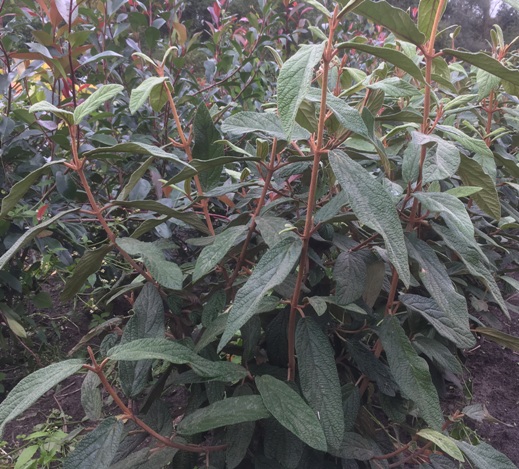Categorieen
- abelia
- acer
- amelanchier
- aronia
- buddleja
- callicarpa
- calycanthus
- caragana
- carpinus
- caryopteris
- catalpa
- ceanothus
- cephalanthus
- cercis
- choisya
- clethra
- cornus
- corylopsis
- corylus
- cotinus
- cotoneaster
- crataegus
- deutzia
- diervilla
- edgeworthia
- elaeagnus
- euonymus
- exochorda
- fagus
- fatsia
- forsythia
- fothergilla
- fuchsia
- gleditsia
- hamamelis
- hedera
- heptacodium
- hibiscus
- hydrangea
- hypericum
- itea
- kolkwitzia
- leucothoe
- ligustrum
- liquidambar
- liriodendron
- lonicera
- loropetalum
- magnolia
- mahonia
- malus
- morus
- nandina
- osmanthus
- parrotia
- perovskia
- philadelphus
- photinia
- physocarpus
- pieris
- platanus
- potentilla
- prunus
- pyrus
- rhus
- ribes
- salix
- sambucus
- skimmia
- sorbaria
- spiraea
- stephanandra
- stewartia
- styrax
- syringa
- tamarix
- tetrapanax
- tilia
- viburnum
- weigela
- acaena
- acanthus
- agapanthus
- agastache
- ajuga
- alchemilla
- allium
- alyssum
- amsonia
- anaphalis
- anchusa
- anemone
- antennaria
- artemisia
- aruncus
- aster
- astilbe
- aubrieta
- bergenia
- brunnera
- calamintha
- campanula
- centaurea
- centranthus
- ceratostigma
- chelone
- chrysanthemum
- cimicifuga
- coreopsis
- darmera
- delphinium
- dianthus
- doronicum
- echinacea
- echinops
- erigeron
- eupatorium
- euphorbia
- filipendula
- fragaria
- gaillardia
- galium
- gaura
- geranium
- geum
- gypsophila
- helenium
- helianthemum
- helianthus
- helleborus
- hemerocallis
- heuchera
- hosta
- houstonia
- iberis
- inula
- iris
- isotoma
- kalimeris
- knautia
- kniphofia
- lamiastrum
- lamium
- lavandula
- lewisia
- liatris
- ligularia
- liriope
- lupinus
- lysimachia
- lythrum
- nepeta
- oenothera
- ophiopogon
- pachysandra
- penstemon
- persicaria
- phlomis
- phlox
- physalis
- physostegia
- prunella
- pulmonaria
- pulsatilla
- rodgersia
- rudbeckia
- salvia
- saponaria
- sedum
- solidago
- stachys
- symphytum
- teucrium
- thalictrum
- thymus
- tradescantia
- verbena
- veronica
- vinca
- waldsteinia
- abelia
- acer
- amelanchier
- aronia
- buddleja
- callicarpa
- calycanthus
- caragana
- carpinus
- caryopteris
- catalpa
- ceanothus
- cephalanthus
- cercis
- choisya
- clethra
- cornus
- corylopsis
- corylus
- cotinus
- cotoneaster
- crataegus
- deutzia
- diervilla
- edgeworthia
- elaeagnus
- euonymus
- exochorda
- fagus
- fatsia
- forsythia
- fothergilla
- fuchsia
- gleditsia
- hamamelis
- hedera
- heptacodium
- hibiscus
- hydrangea
- hypericum
- itea
- kolkwitzia
- leucothoe
- ligustrum
- liquidambar
- liriodendron
- lonicera
- loropetalum
- magnolia
- mahonia
- malus
- morus
- nandina
- osmanthus
- parrotia
- perovskia
- philadelphus
- photinia
- physocarpus
- pieris
- platanus
- potentilla
- prunus
- pyrus
- rhus
- ribes
- salix
- sambucus
- skimmia
- sorbaria
- spiraea
- stephanandra
- stewartia
- styrax
- syringa
- tamarix
- tetrapanax
- tilia
- viburnum
- weigela
- acaena
- acanthus
- agapanthus
- agastache
- ajuga
- alchemilla
- allium
- alyssum
- amsonia
- anaphalis
- anchusa
- anemone
- antennaria
- artemisia
- aruncus
- aster
- astilbe
- aubrieta
- bergenia
- brunnera
- calamintha
- campanula
- centaurea
- centranthus
- ceratostigma
- chelone
- chrysanthemum
- cimicifuga
- coreopsis
- darmera
- delphinium
- dianthus
- doronicum
- echinacea
- echinops
- erigeron
- eupatorium
- euphorbia
- filipendula
- fragaria
- gaillardia
- galium
- gaura
- geranium
- geum
- gypsophila
- helenium
- helianthemum
- helianthus
- helleborus
- hemerocallis
- heuchera
- hosta
- houstonia
- iberis
- inula
- iris
- isotoma
- kalimeris
- knautia
- kniphofia
- lamiastrum
- lamium
- lavandula
- lewisia
- liatris
- ligularia
- liriope
- lupinus
- lysimachia
- lythrum
- nepeta
- oenothera
- ophiopogon
- pachysandra
- penstemon
- persicaria
- phlomis
- phlox
- physalis
- physostegia
- prunella
- pulmonaria
- pulsatilla
- rodgersia
- rudbeckia
- salvia
- saponaria
- sedum
- solidago
- stachys
- symphytum
- teucrium
- thalictrum
- thymus
- tradescantia
- verbena
- veronica
- vinca
- waldsteinia
Viburnum rhytidophyllum
€ 7,30
| Maat | Eenheidsprijs | >24 | >100 |
|---|
| CO 5 L 40.60 | € 7.30 | - | - |
|---|
| Maatcode | Omschrijving | Maatcode | Omschrijving |
|---|---|---|---|
| 020.40 | hoogte of breedte bij aankoop: 20 - 40 cm | CO | plant in container |
| 040.60 | hoogte of breedte bij aankoop: 40 - 60 cm | C | plant in container |
| 060.80 | hoogte of breedte bij aankoop: 60 - 80 cm | C2...C4.. | plant in 2..4 liter pot |
| 080.100 | hoogte of breedte bij aankoop: 80 - 100 cm | CSTR | struik in container |
| 100.125 | hoogte of breedte bij aankoop: 100 - 125 cm | CHS08.10 | hoogstammige boom in pot; stamhoogte: 220 cm; stamomtrek: 8/10 cm |
| 125.150 | hoogte of breedte bij aankoop: 125 - 150 cm | BOS | bossig struikje, grootte in cm |
| 150.175 | hoogte of breedte bij aankoop: 150 - 175 cm | BW | jonge haagplant met blote wortel, grootte in cm |
| 175.200 | hoogte of breedte bij aankoop: 175 - 200 cm | STAM | plant met stamlengte van ……cm |
| 200.250 | hoogte of breedte bij aankoop: 200 - 250 cm | P9 | plant in pot van 9 cm |
| 250.300 | hoogte of breedte bij aankoop: 250 - 300 cm | P12 | plant in pot van 12 cm |
| 300.350 | hoogte of breedte bij aankoop: 300 - 350 cm | KLIM | klimplant |
| CO5L | plant in pot van 5 L | ||
| HS06.08 | hoogstammige boom met blote wortel; stamhoogte: 220 cm; stamomtrek: 6/8 cm | ||
| HS08.10 | hoogstammige boom met blote wortel; stamhoogte: 220 cm; stamomtrek: 8/10 cm | V150.175 | geveerde, gevormde haagplant met lengte….. |
| HS10.12 | hoogstammige boom met blote wortel; stamhoogte: 220 cm; stamomtrek: 10/12 cm | V175.200 | geveerde, gevormde haagplant met lengte….. |
| HS12.14 | hoogstammige boom met blote wortel; stamhoogte: 220 cm; stamomtrek: 12/14 cm | V200.250 | geveerde, gevormde haagplant met lengte….. |
| HS14.16 | hoogstammige boom met blote wortel; stamhoogte: 220 cm; stamomtrek: 14/16 cm | V250.300 | geveerde, gevormde haagplant met lengte….. |
| DRK16.18 | hoogstammige boom met draadkluit; stamhoogte: 220 cm; stamomtrek: 16/18 cm | ||
| DRK18.20 | hoogstammige boom met draadkluit; stamhoogte: 220 cm; stamomtrek: 18/20 cm | ZCSTR | zware struik in pot |
| DRK20.25 | hoogstammige boom met draadkluit; stamhoogte: 220 cm; stamomtrek: 20/25 cm | LEI | leivorm bij fruitgoed |
| DRK25.30 | hoogstammige boom met draadkluit; stamhoogte: 220 cm; stamomtrek: 25/30 cm | LEI 2V | Leivorm bij fruitgoed: dubbel V |
| LEI 2U | Leivorm bij fruitgoed: dubbel U | ||
| DRKL | boom met draadkluit | ||
| STR3/5 | struik, blote wortel, 3-5 takken | ||
| STR5/8 | struik, blote wortel, 5-8 takken | ||
| KL | boom met kluit | ||
| LEI12.16 | voorgeleide boom met voorgeleide takken, meestal 4 etages op 200-250-300-350cm | ||
| DAK12.14 | voorgeleide boom met dakstructuur, stamhoogte 240-260cm | ||
| nbsp; | |||
| C1.5 ST | Plant in 1,5L pot Gestokt : Aangebonden aan bamboestok |
WB-PALLET waarborg pallet
<100M2TRAN transportkosten: minder dan 100 m2
| Bloemkleur |
|
|---|---|
| Bloeimaand |
|
| Categorie |
|
| Hoogte volwassen plant |
|
| Snelselectie |
|
| Bloemvorm |
|
| Grondsoort |
|
| Speciaal |
|
| Vormen |
|
| Standplaats |
|
| Afstand |
|
Viburnum rhytidophyllum
De nederlandse naam is "Sneeuwbal", familie van de Caprifoliaceae. De bloemkleur is cremewit en de bloeitijd is van ca. mei tot en met juni. De bladeren zijn dofgroen. De volwassen hoogte van deze grote heester is ca. 300 cm. Verdraagt een temperatuur tot -20 gr. C. en blijft de gehele winter groen. Ook als hoge bodembedekker te gebruiken.
Geschikt voor een warme plaats.
Zoals beschutte zuid-hellingen, dicht bij bebouwing, daktuinen ed. Vaak afkomstig uit zuidelijke streken. Met een min of meer voedselrijke, frisse tot licht vochtige, grond die licht zuur tot kalkhoudend is en uit zand-leem/klei bestaat. Zonnig tot lichte schaduw, warmte verdragend. Kan bij late nachtvorst schade oplopen. Moeilijk met vaste planten te combineren, door te lage takken, oppervlakkige worteling o.i.d.
Onderhoud etc.:
Grond moet goed los en voedzaam zijn. Zware grond niet verdichten door bijvoorbeeld veel rond de struik te lopen, of er vlak langs te rijden (auto, oprit). Moet om de paar jaar gedund worden, d.w.z. oud hout wordt na de bloei zo diep mogelijk uit de struik gelicht.
De nederlandse naam is "Sneeuwbal", familie van de Caprifoliaceae. De bloemkleur is cremewit en de bloeitijd is van ca. mei tot en met juni. De bladeren zijn dofgroen. De volwassen hoogte van deze grote heester is ca. 300 cm. Verdraagt een temperatuur tot -20 gr. C. en blijft de gehele winter groen. Ook als hoge bodembedekker te gebruiken.
Geschikt voor een warme plaats.
Zoals beschutte zuid-hellingen, dicht bij bebouwing, daktuinen ed. Vaak afkomstig uit zuidelijke streken. Met een min of meer voedselrijke, frisse tot licht vochtige, grond die licht zuur tot kalkhoudend is en uit zand-leem/klei bestaat. Zonnig tot lichte schaduw, warmte verdragend. Kan bij late nachtvorst schade oplopen. Moeilijk met vaste planten te combineren, door te lage takken, oppervlakkige worteling o.i.d.
Onderhoud etc.:
Grond moet goed los en voedzaam zijn. Zware grond niet verdichten door bijvoorbeeld veel rond de struik te lopen, of er vlak langs te rijden (auto, oprit). Moet om de paar jaar gedund worden, d.w.z. oud hout wordt na de bloei zo diep mogelijk uit de struik gelicht.



